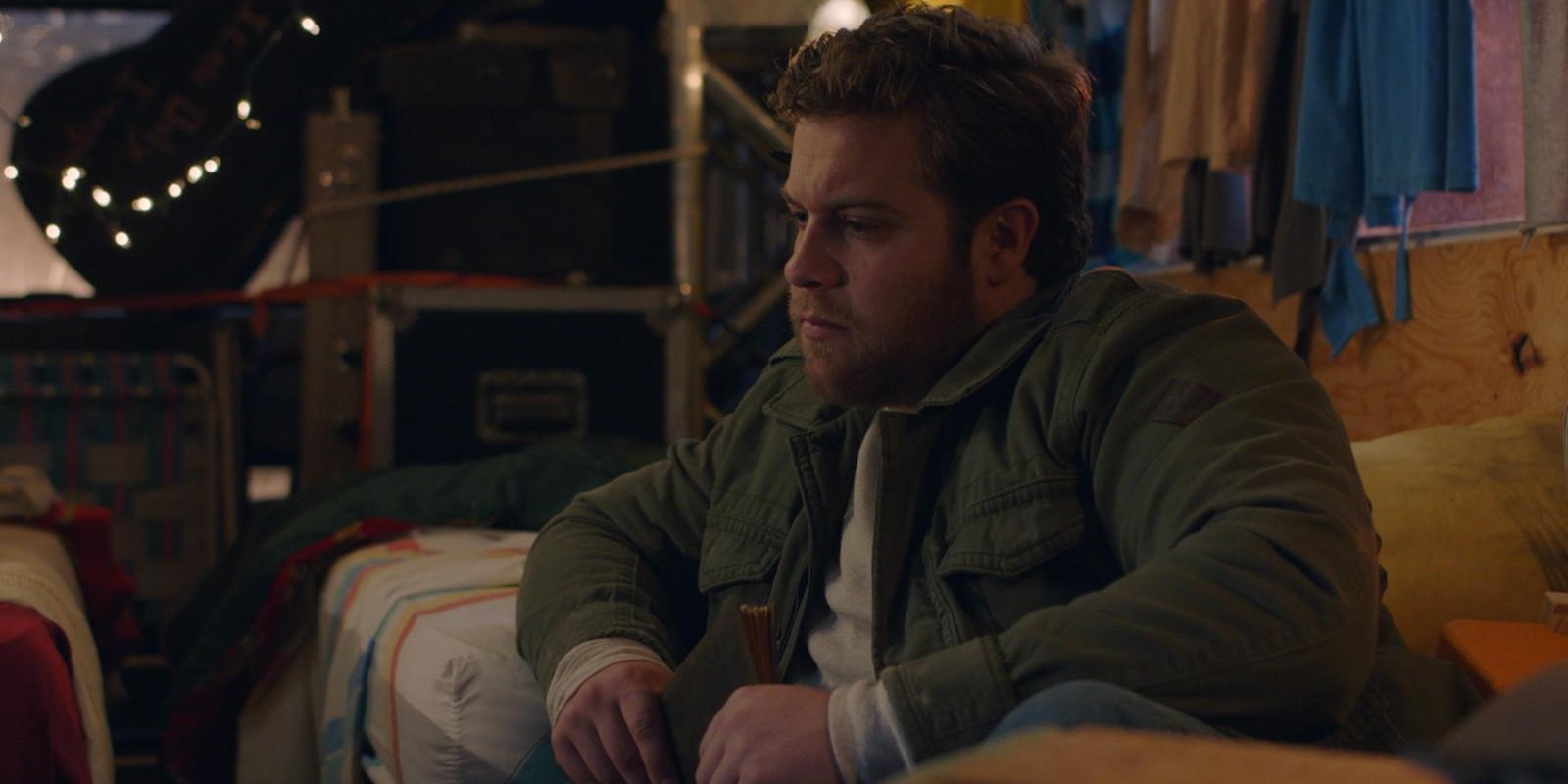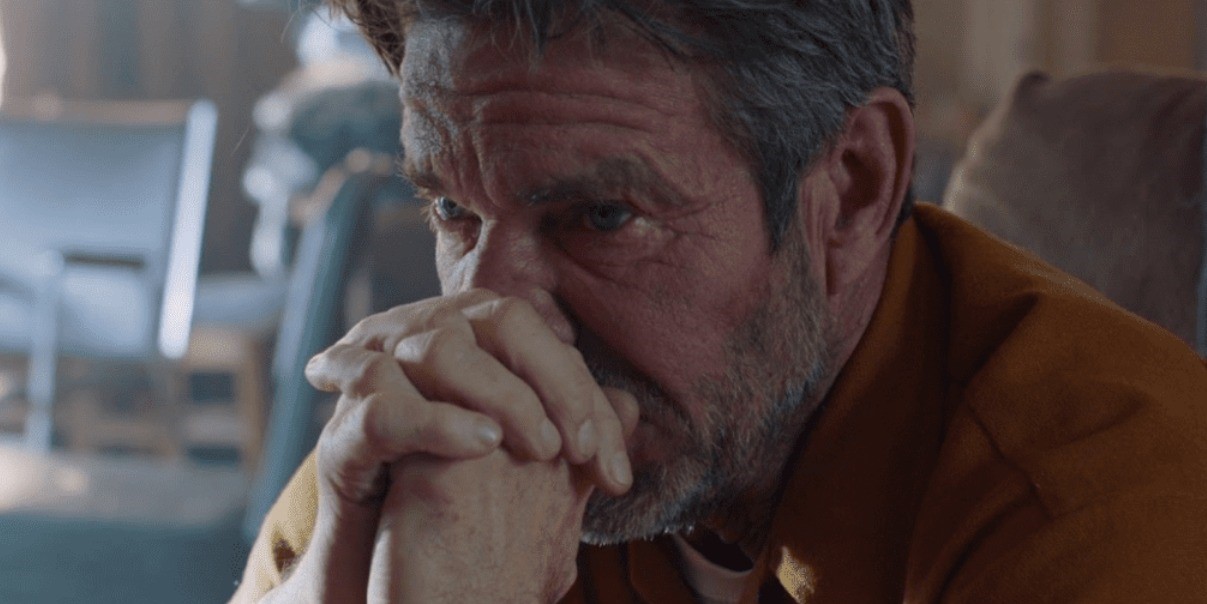Helmed by Andrew Erwin and Jon Erwin, ‘I Can Only Imagine’ follows the unfortunate life of Bart, a young boy whose mother abandons the household, leaving him alone with his abusive father, Arthur. Bart faces frequent beatings at home and decides to play football, as his father had, to seek his approval. However, much like Arthur, Bart too faces an injury and signs up for music for the only available elective left, music. He soon discovers a passion for the instruments and writing his own songs.
Bart faces abuse and ridicule from Arthur when he professes his interest in becoming a musician and singer, eventually prompting him to leave home and run as far away from him as he possibly could. He meets new people and finds a supportive mentor, learning to channel the broiling emotional storm within him into writing and performing his songs. While he is away, he hears of his father being diagnosed with cancer, and returns to take care of him, to find a completely transformed man. Arthur had found Jesus and seeks to make amends with his son.
In Bart’s eyes, he goes from being a monster to a man he wants to become, deeply impacting him. If the Gospel could change a man like him, it truly held life-changing power. Bart takes on his emotional turmoil through his music, his internal storm calmer and more passionate than ever, going on to create a masterwork dedicated to the man he once loathed. Watching the truly touching tale unfold, one is forced to ask if the story of the 2018 Christian biographical drama film is based on the reality of someone’s life.
I Can Only Imagine is the True Story of Singer Bart Millard
Yes, ‘I Can Only Imagine’ is based on the early life of Bart Millard, leader and songwriter for the Christian music band, MercyMe. The film’s title is named after the band’s most popular song. The movie remains largely true to the story of Millard’s life, with some differences for dramatic effect or simplicity. When Millard was initially approached for the musical biopic, he was uncertain of its potential success, and despite nearing his 40s, very sensitive about the past, a lot of which he had attempted to bury. It would be eight years before the movie began filming, giving him time to go through counselling, and emotionally preparing him to narrate his tale to the world.

A month before the film’s release, Bart published a memoir detailing the incidents in his life that had inspired the movie. The memoir was a completely accurate version of events, while the movie took certain creative liberties. The incoherences in the movie as compared to his life start from its very beginning as Bart wasn’t an only child and had an elder brother, Stephen. While it was true that Bart’s mother left them due to his father’s non-physical abuse against her, she did this when he was 3-years-old, as opposed to 13 in the film. Furthermore, she kept the kids with her up until the third grade, and the family decided it was best for them to stay with their father after she moved away with her third husband.
Unfortunately, the beatings and misery Bart endured are accurate, if not toned down for audiences to stomach. Despite not indulging in alcohol or substance abuse, Arthur had a short temper ever since being involved in an accident that left him in a coma for eight weeks. People who were close to him recounted his former persona as akin to that of a big teddy bear. However, he was not the same since the incident, growing short-tempered and abusive to those around him.
Speaking to The Tennessean, Bart recounted the time his father found out about a harmlessly forged signature and beat him with a razor strap and wooden paddle. “He beat me all the way through the house. Everything on me hurt so badly I couldn’t lay on my back.” He cried in the darkness of his room for hours, until Arthur burst in and shouted at him to stop crying. However, he froze upon seeing his son’s back. It was covered with dark welts and purplish bruises. It was the first time that Bart had ever heard his father cry.
Prior to the film’s release, Bart showed it to his mother and brother. While she cried as said it was accurate, Stephen found it hard to watch. He later accused Bart of embellishing details for ticket sales, causing an emotional outburst from Bart and creating a rift between the two. “If I never talk to my brother again,” he told his wife repeatedly, “none of this is worth it.” Older by five years, Bart had worshipped his elder brother, as he had always helped protect him from their father.
When Stephen had to leave for college, Bart was left vulnerable, something the older brother had trouble dealing with. When he heard his stories of abuse, he felt partly responsible, and the unbearable guilt made him want to believe things hadn’t been as bad as he made it out to be. Thankfully the two brothers reconciled when Bart called Stephen for Thanksgiving dinner, sharing somber memories and becoming closer than ever.
Read More: I Can Only Imagine: Shooting Sites of the Musical Biopic Explored


You must be logged in to post a comment.